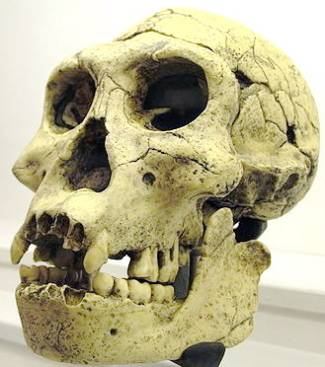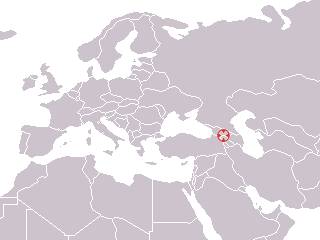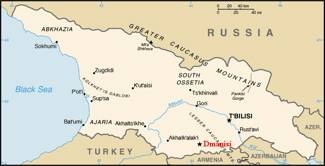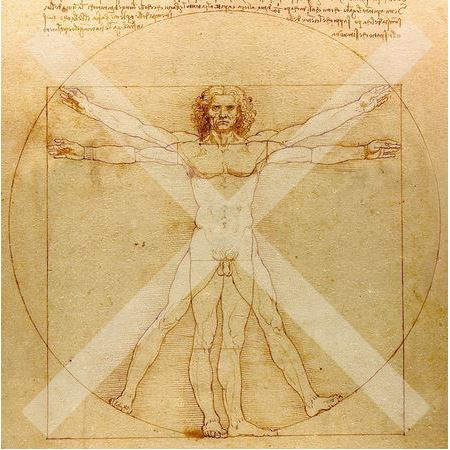Homo georgicus
Online Biology Dictionary
|
|
EUGENE M. MCCARTHY, PHD
 |
| Homo georgicus (Enlarged view) |

|
| Location of Georgia |

|
| Location of the discovery |
The remains of a new hominid, subsequently named Homo georgicus, were discovered in Dmanisi, Republic of Georgia in 1991 by a team led by Georgian paleoanthropologist David Lordkipanidze (Lordkipanidze et al. 2006; Vekua et al. 2002). Skulls and several near complete skeletons have been found, which have been reliably dated to 1.77 mya.
Homo georgicus was bipedal, but was rather small. Males stood only about four feet (1.3 m) tall, and the females were even smaller. Cranial measurements of the well-preserved skull D2700 indicate the brain of H. georgicus was about half as large (around 600cc) as that of a modern human being — the smallest of any adult hominid yet found outside Africa other than that of the far more recent Homo floresiensis. Tooth-wear patterns and remains found at the site show H. georgicus had an omnivorous diet, but there is no evidence of the use of fire. Crude stone tools have been found in association with the remains (see picture >>).
Homo georgicus: A missing link?
It has been suggested that H. georgicus may represent a link between Homo habilis and Homo erectus. With an age of about 1.8 million years, the remains of H. georgicus do in fact date to a period when H. habilis and H. erectus overlapped in time. Moreover, georgicus individuals are about the same size as the few adult habilis specimens known, and their skulls are rather similar. However, H. habilis is known only from sub-Saharan Africa.
Since these fossils were found on the eastern shore of the Black Sea, it's unclear — though some have made the suggestion — that H. georgicus was the first hominid to settle in Europe. The oldest human remains found on actual European soil are those from the Sima del Elefante in Spain, which date to 1.1–1.2 mya (Carbonell et al. 2008). For the present, about the only sure conclusion is that H. georgicus represents a new and interesting twig on the hominid bush.
Perhaps we are not from the apes alone?

|
Australopithecus bahrelghazali >>
Most shared on Macroevolution.net:
Human Origins: Are we hybrids?
On the Origins of New Forms of Life
Mammalian Hybrids
Cat-rabbit Hybrids: Fact or fiction?
Famous Biologists
Dog-cow Hybrids
Georges Cuvier: A Biography
Prothero: A Rebuttal
Branches of Biology
Dog-fox Hybrids